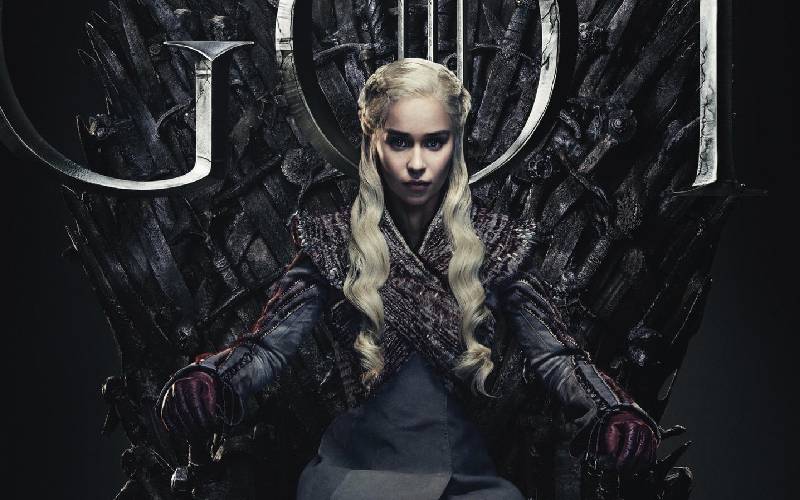
‘Game of Thrones’ (GoT) is a show depicting the political story of Westeros, a fantasy world based on medieval Western Europe.
Its storyline echoes our current world. Like most products of artistic imagination, the show can help us reflect on the state of our own world.
Indeed, those watching the show with an eye on power contests in Africa would not fail to draw some parallels with our own realities.
There are two outstanding things from the show. First, the characters. There is at least one unforgettable character who bears resemblance to those within our political realities.
This is Ramsey Bolton. In current language, Ramsey Bolton is born a hustler, with no claims to his father’s wealth and status because he is a bastard, having been conceived out of wedlock.
But through hustling that involved deployment of unprecedented sociopathy including skinning some of his rivals alive and feeding others to his dogs, he rises to one of the most powerful positions in Westeros.
He is only stopped by the show’s main hero, Jon Snow. This has parallels with current powerful hustlers in our own current world, who through deployment of cold sociopathy have risen into positions of immense power in some African countries.
Besides characters, the show’s other interesting product is the subject of liberation and liberators.
From the very first season of the show, the people of Westeros are living under immense terror from a character called the Night King.
His zombies
Night King is king of those who have died but who he has risen again as zombies and deployed to roam in the haunted forest, just beyond the wall that marks the northern boundary of Westeros.
Throughout the show, the Night King and his zombies terrorise anyone found beyond the wall, and constantly threaten to descend south into Westeros to turn everyone into zombies.
Towards the end, the Night King actually starts the whole process of attacking the south to go and convert the living into zombies.
Jon Snow, the show’s hero mobilises an alliance of the living to confront the Night King.
Among the most powerful allies that Jon is able to get is Daenerys Targaryen, an exiled princess of Westeros, who has been living in exile since her father, King Aerys Targaryen was violently dethroned from the Iron Throne by King Robert Baratheon.
While in exile, princess Daenerys (Dany) acquires armies made up of men she frees from slavery and people from the Dothraki tribe, into which she had been married.
She also has three dragons, which through the show’s literary license of magic, she hatches.
The dragons grow up into three devastating weapons of aerial warfare. Although Jon tries to bring Cersei Lannister – widow of King Robert Baratheon, current queen of Westeros and rival of princess Dany - into the broad alliance against the Night King, Cersei rejects the invitation and instead mobilizes her own forces against princess Dany.
The forces of Jon and Dany go to battle against the Night King and eventually overcome him, liberating the people of Westeros from potential annihilation.
Completely unhinged
Soon after the battle, princess Dany decides to dethrone queen Cersei Lannister and reclaim the Iron Throne, which her father had lost. The princess quickly degenerates from liberator to killer tyrant when she arrives in Westeros.
Granted, she is provoked into rage by queen Cersei who ambushes her and kills not just one of her dragons, but also Missandei, her closest advisor. In her rage, the princess becomes completely unhinged and using her sole surviving dragon, rains fire on the whole of King’s Landing, the capital city and seat of central power in Westeros. In the process, everyone; elite and ordinary people, queen Cersei and children of serfs alike, is killed.
From a liberator who had not only freed slaves but also liberated the living from the terror of the Night King, princess Dany becomes a bloodthirsty killer who threatens the existence of those who looked up to her as liberator.
The degeneration of princess Dany from liberator to tyrant has obvious parallels all over Africa. All parts of Africa have had their version of the Night King.
This could have ranged from brutal colonialism and apartheid, to Africa’s first generation of tyrant presidents and military rulers such as Idi Amin, Jean Bokassa, Mengistu Haile Mariam and others, to actual processes of annihilating people such as the genocides and massacres in Rwanda and Burundi respectively.
These Night Kings of Africa’s past provoked liberators to build alliances that fought them to liberate people from their killer clutches. Figures from Africa’s political history like Zimbabwe’s Mugabe, Uganda’s Museveni, Ethiopia’s Zenawi, Rwanda’s Kagame, Eritrea’s Aferworki and Burundi’s Nkurunzinza were basically heads of alliances against Africa’s old killer ‘Night Kings.’
But as soon as they defeated the old night kings, most of them turned their weapons on the people they purported to have liberated.
Mr Muyumbu is a researcher in governance

